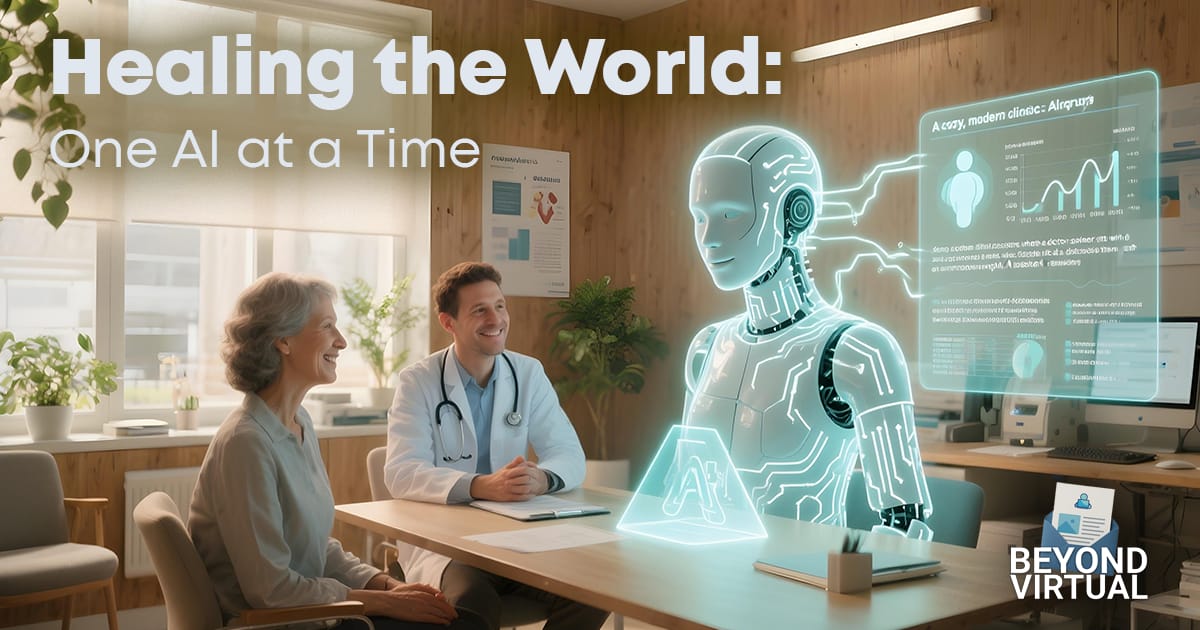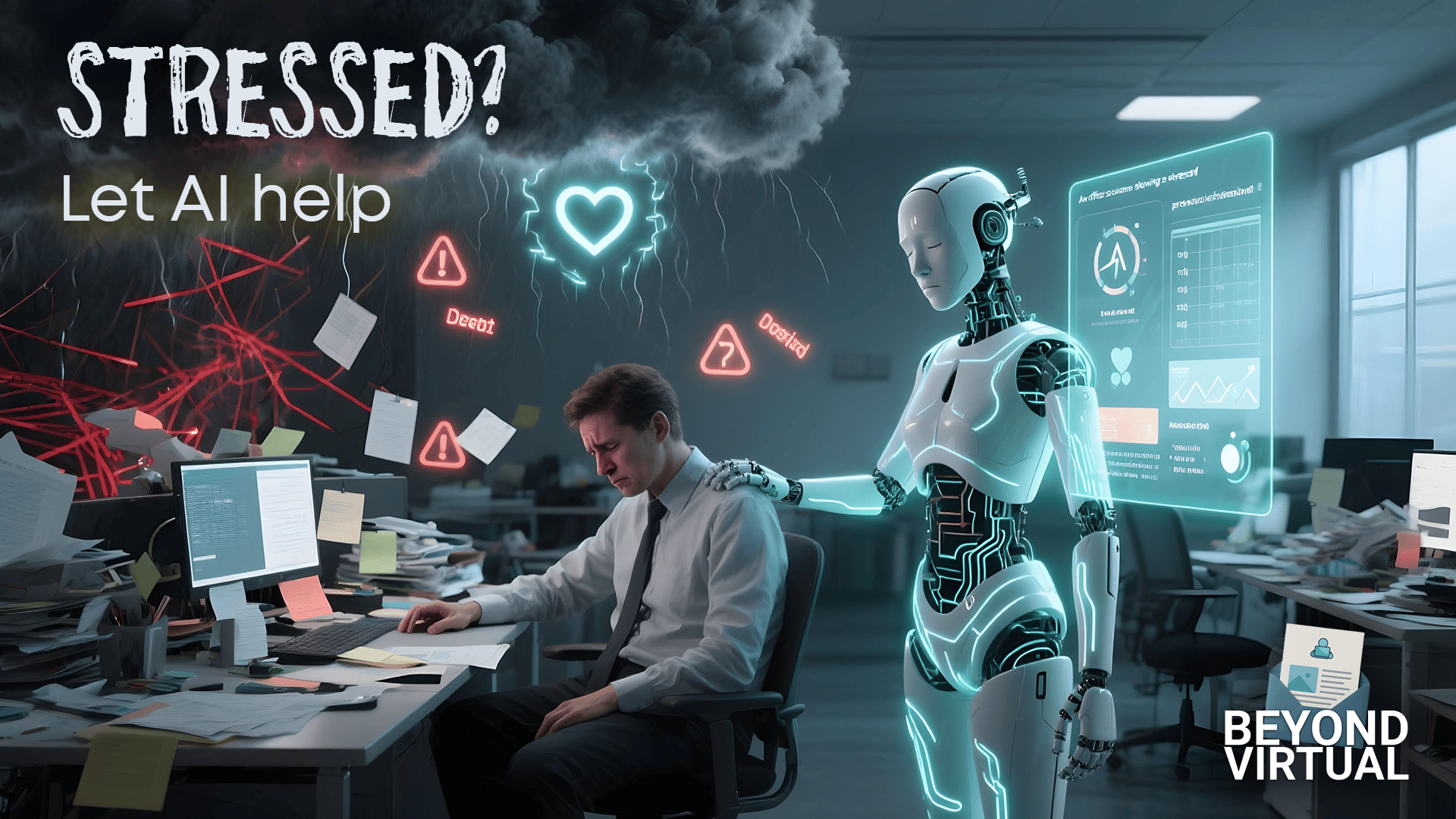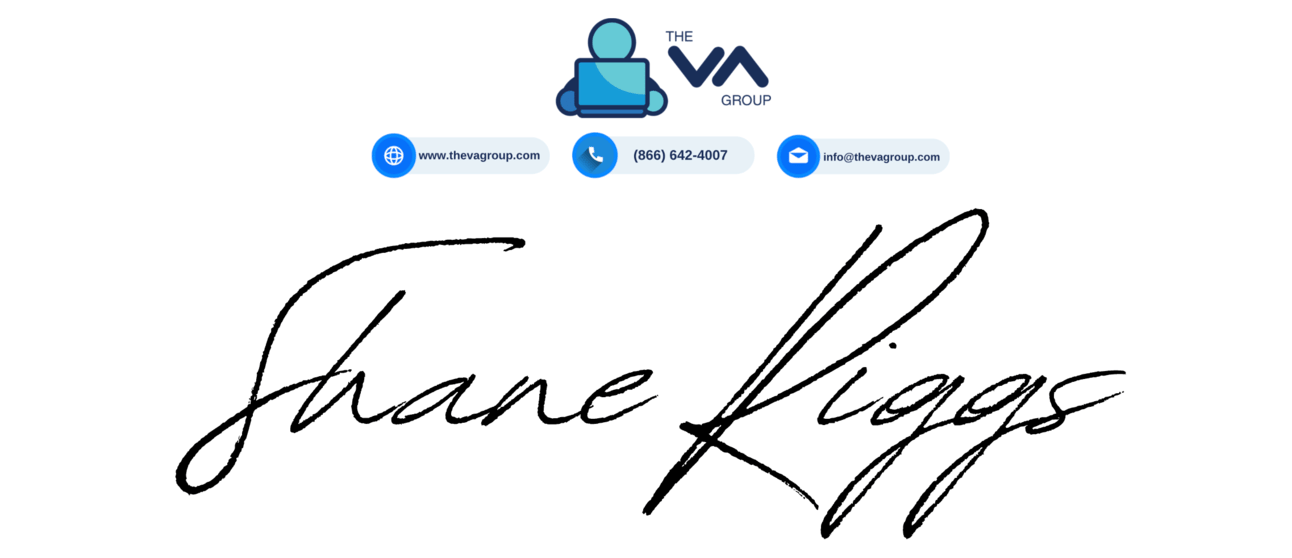- The VA Group
- Posts
- Healing the World: One AI at a Time
Healing the World: One AI at a Time

BEYOND VIRTUAL
“AI is dangerous!” “AI is stealing our jobs!”
These headlines sound too familiar, but here’s something to consider: What if the AI we're worried about moving too fast is actually the same AI that could save your life next year?
I've been diving deep into recent breakthroughs, and what I've discovered has, once again, shifted my perspective. While we debate AI safety in boardrooms, AI systems are quietly solving problems that kill millions of people annually.
In this issue, I want to share some major developments that prove AI isn't just changing the business landscape—it's changing the world.
And maybe, just maybe, we need it to move even faster.
Feature Story
WHEN AI BECOMES A LIFESAVER: THE ANTIBIOTIC BREAKTHROUGH OF THE CENTURY

Here's something that'll make you rethink everything about AI development.
While we've been debating whether AI is moving too fast, researchers at MIT just used it to solve one of medicine's most urgent crises: drug-resistant bacteria that kill millions of people every year. MIT News, 2025. Using generative AI, researchers design compounds that can kill drug-resistant bacteria.
The Problem We're Up Against
Drug-resistant gonorrhea has been labeled an "urgent public health threat," and MRSA infections are notoriously difficult to treat. These are infections that can kill people because our current antibiotics simply don't work against them anymore.
For decades, pharmaceutical companies have struggled to develop new antibiotics. The traditional approach involves testing thousands of compounds, most of which fail. It's expensive, time-consuming, and often fruitless.
That was until MIT researchers did something remarkable. Instead of testing existing compounds, they used generative AI to design completely novel antibiotics from a 36-million-compound virtual library.
Think about that for a second. The AI didn't just analyze what already existed; it imagined entirely new molecular structures that had never been created before.
The resulting drugs, named DN1 for MRSA and NG1 for drug-resistant gonorrhea, are unlike any antibiotics in use today. They appear to work by disrupting bacterial cell membranes.
And the results are stunning!
Laboratory tests show the compounds kill bacteria without harming human cells, and tests on infected mice confirmed their effectiveness.
To me, this really solidifies AI's potential. This marks a rare breakthrough in a field that has struggled for years to develop new treatments.
This is exactly the kind of AI advancement that makes me reconsider my cautious stance. While we still need to be careful about AI development, we also need to recognize that some problems are so urgent, so critical to human survival, that we need a faster solution—and that solution is AI.
There would be many years of further testing, including clinical trials, before the drugs would be prescribed by doctors. But the breakthrough itself? That happened in months, not decades.
Check out Issue 15 if you want to see more breakthroughs done with AI.
Visionary Voices
THE WORLD'S FIRST AI ETHICS OFFICER HAS SOMETHING TO SAY ABOUT HEALTHCARE
Meet Kay Firth-Butterfield: the world's first Chief AI Ethics Officer (2014), TIME Impact Award winner (2024), and CEO of Good Tech Advisory.
As AI becomes more accessible and widely used, she's using her platform to aid this transition while addressing the benefits and ethical risks of technologies such as generative AI.
What I find compelling about Firth-Butterfield's approach is that she's not anti-technology or pro-technology. She's pro-responsible technology.
Her framework asks three questions:
Does this AI benefit humanity?
Are we building it transparently and safely?
Who gets access to the benefits?
Why this matters: Firth-Butterfield argues that ethical AI development isn't about going slower, but it's about going in the right direction, faster.
"We can't afford to slow down AI that saves lives; we can only afford to speed up our responsibility in building it right."
The Future of Human Health
Firth-Butterfield has been advocating for what she calls "AI for Good", which is the idea that we should be deliberately designing AI systems to solve humanity's biggest challenges.
And in healthcare? The last things we’d least likely to consider are speed and efficiency.
Drug discovery typically takes 10-15 years and costs billions of dollars. Climate change is accelerating disease patterns, and antibiotic resistance is creating superbugs faster than we can develop treatments.
This is exactly the kind of AI development we should be encouraging, not slowing down.
Her upcoming book: "Co-Existing with AI: A Guide to Living, Loving, and Working with AI" (Wiley, November 2025)—and it’s already on my pre-order list.
Check out more of her works: https://kayfirthbutterfield.com/
The Trend
AI STRESS REDUCTION: THE WORKPLACE WELLNESS REVOLUTION

Here's a trend that hits close to home for anyone managing teams, dealing with client deadlines, or juggling multiple projects: AI is starting to tackle workplace stress directly.
And given that stress kills approximately 2.8 million people every year—many linked to excessive workloads and long work hours—this might be one of the most important AI applications we haven't been paying enough attention to. UN News, 2019. Stress, overtime, disease, contribute to 2.8 million workers’ deaths per year, reports UN labour agency
We've all heard about workplace stress, but here's the thing: it's a legitimate health crisis. It's a silent killer that contributes to everything from heart disease and diabetes to mental health issues and premature death.
How AI Is Helping
Recent Swedish university research shows AI can reduce stress by a significant amount when people handle multiple or unfamiliar tasks. So, how can AI help? M.Koch and M.Lodefalk, 2024. Artificial Intelligence and Worker Stress: Evidence from Germany
Think about it, instead of your team stressing about whether they're handling a client request correctly, AI can provide real-time guidance. Instead of you losing sleep over whether a project is on track, AI can monitor progress and only alert you when intervention is needed.
How We're Applying this at The VA Group:
Task Management AI: Learns patterns and flags potential burnout 48 hours before it typically occurs
Decision Support Systems: Provides instant guidance on complex client requests, eliminating the "Am I handling this right?" anxiety
Workflow Optimization: Identifies when team members are task-switching too frequently and suggests more efficient scheduling
Early Warning Systems: Monitors communication patterns to flag stress situations before they become crises
Our results after 6 months:
35% reduction in reported workplace anxiety
28% improvement in decision-making confidence
42% decrease in after-hours work-related communication
Minimal stress-related sick days (compared to >10 in the previous years)
Here's the fascinating part: Our team reports feeling more human, not less. When AI handles the mental overhead, people have more capacity for creativity, problem-solving, and meaningful client relationships.
Question for you: If AI can genuinely reduce workplace stress—extending careers, improving client service, and literally saving lives—shouldn't we be implementing it faster, and not hinder it?
And to give everyone a sign of relief, here’s the best part of it. This is AI working alongside humans, not replacing them. It's amplifying our natural abilities while protecting our well-being.
That's exactly the kind of AI development I can get behind—and I’m sure most of you are rooting for as well.
A Final Note
After seeing AI discover life-saving antibiotics, support ethical development frameworks, and reduce the stress that literally kills people, I'm realizing something important:
The question isn't whether AI is moving too fast, but whether we're being smart enough about directing that speed toward problems that need our attention.
“AI is powerful. But power without purpose is just chaos.”
Power directed at saving lives, reducing suffering, and solving problems that have plagued humanity for generations? That's something worth accelerating.
The companies that succeed with AI won't just be the ones that implement it fastest or most efficiently. They'll be the ones that implement it most thoughtfully, with a clear understanding of what problems they're trying to solve and why those problems matter.
We're not just building better tools. We're potentially building a better world.
And that's worth getting right.
Until next time,

Are you ready to get your time back? Here's how we can help.
We've already improved the lives of THOUSANDS of business owners, and you and your business might be NEXT! It's time to stop working in your business and start working on it.
Start seeing results. Click here and let's start making it possible.